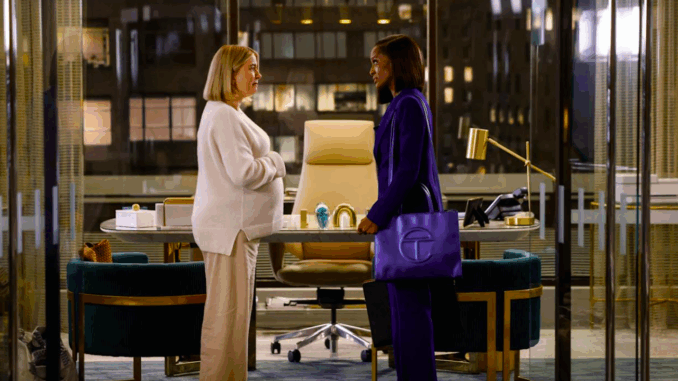
Reviving a legacy series is never simple — especially when that series is as beloved as Matlock. But CBS took the risk, and in doing so, sparked something rare in network television: a revival that’s not only faithful to its roots but relevant in today’s streaming-saturated landscape. While the spotlight often falls on Kathy Bates, who redefined the title role with poise and power, the real story might just be what happened behind the scenes — how Matlock became more than a nostalgia play, and instead, a masterclass in modern TV craftsmanship.
It Started with a Name — But Never Stayed There
The name Matlock carries a certain gravitas. For decades, it was synonymous with Andy Griffith’s genteel Southern lawyer — a man who won cases as much with decency as with legal strategy. When CBS first teased its plans for a revival, fans assumed they were in for a sequel, a spinoff, or a courtroom cameo.
But creators Jennie Snyder Urman (Jane the Virgin) and Eric Christian Olsen (NCIS: Los Angeles) had a different vision. They weren’t interested in simply extending a brand. They wanted to reinvent the courtroom drama by fusing smart, serialized storytelling with a character-first approach — and they knew the key wasn’t in bringing back Ben Matlock. It was in creating someone new: Madeline.
Building a Courtroom with Character
What sets the Matlock reboot apart from other legal dramas is its refusal to focus on plot over people. Yes, the courtroom cases are well-researched and timely — addressing everything from environmental whistleblowers to racial bias in jury selection. But those are the vehicles, not the destination.
The real heart of the show lies in its characters. The writers’ room, staffed with legal consultants and veterans from both drama and comedy, worked meticulously to craft arcs that evolve case-by-case, not episode-by-episode. This wasn’t just to give the series more depth — it was to reflect the way real justice plays out: slowly, imperfectly, and through compromise.
Olympia (Skye P. Marshall) grapples with imposter syndrome and the pressure of being a Black woman in an elite legal firm. Julian (Beau Bridges), the firm’s founding partner, balances old-world ideals with the new demands of progressive law. Even the firm’s paralegal team gets substantial storylines — a rarity in most legal dramas.
Kathy Bates: The Center That Holds It All Together
Producers knew they needed a star who could bring gravity to the new Matlock, and their first call was to Kathy Bates. Known for everything from Misery to American Horror Story, Bates brought more than name recognition — she brought empathy, sharp wit, and a willingness to make Madeline flawed.
“She’s not a hero in the traditional sense,” says Urman. “She’s complicated, bruised by past failures, and constantly questioning herself. That’s what makes her so compelling.”
Bates reportedly took an active role in shaping Madeline’s arc, contributing feedback on scripts and pushing for realism over melodrama. She wanted to play a woman who earned her place in every courtroom — not someone who had to declare it in every line.
A Set That Feels Like a Firm
To build authenticity, CBS invested in a courtroom set designed by production designer Tania Bianculli. The goal? Make it feel lived-in — not stylized. From paper-stuffed file cabinets to coffee-stained deposition folders, the legal offices look like places where law is actually practiced, not performed.
The cast also went through a legal “bootcamp,” working with trial attorneys to understand courtroom procedures, tone, and what not to do. The result is a show that satisfies both drama junkies and real-world litigators — a rare Venn diagram intersection.
Season 2: Scaling Up While Keeping It Grounded

With Season 2 greenlit, the behind-the-scenes team is expanding the show’s scope. Expect deeper dives into systemic legal failures, more serialized storytelling, and an arc that hints at internal corruption inside Julian’s law firm.
There’s also a plan to introduce a major case that spans multiple episodes, placing Madeline in direct conflict with federal prosecutors — a departure from the standalone trials of Season 1.
Yet amid the expansion, producers remain committed to what made Matlock work in the first place: character-driven storytelling, intelligent legal discourse, and a healthy skepticism of power.
A New Standard for Reboots?
The Matlock reboot may have started as a curiosity — a gamble by CBS to capitalize on a familiar name — but it’s quickly become a template for how to do a reboot right. It honors its past without being enslaved to it, and it presents a future where older women aren’t just supporting characters, but the leads.
In an era of shallow remakes and forgettable spinoffs, Matlock has earned its second chance — not by imitating greatness, but by building something great from the ground up.